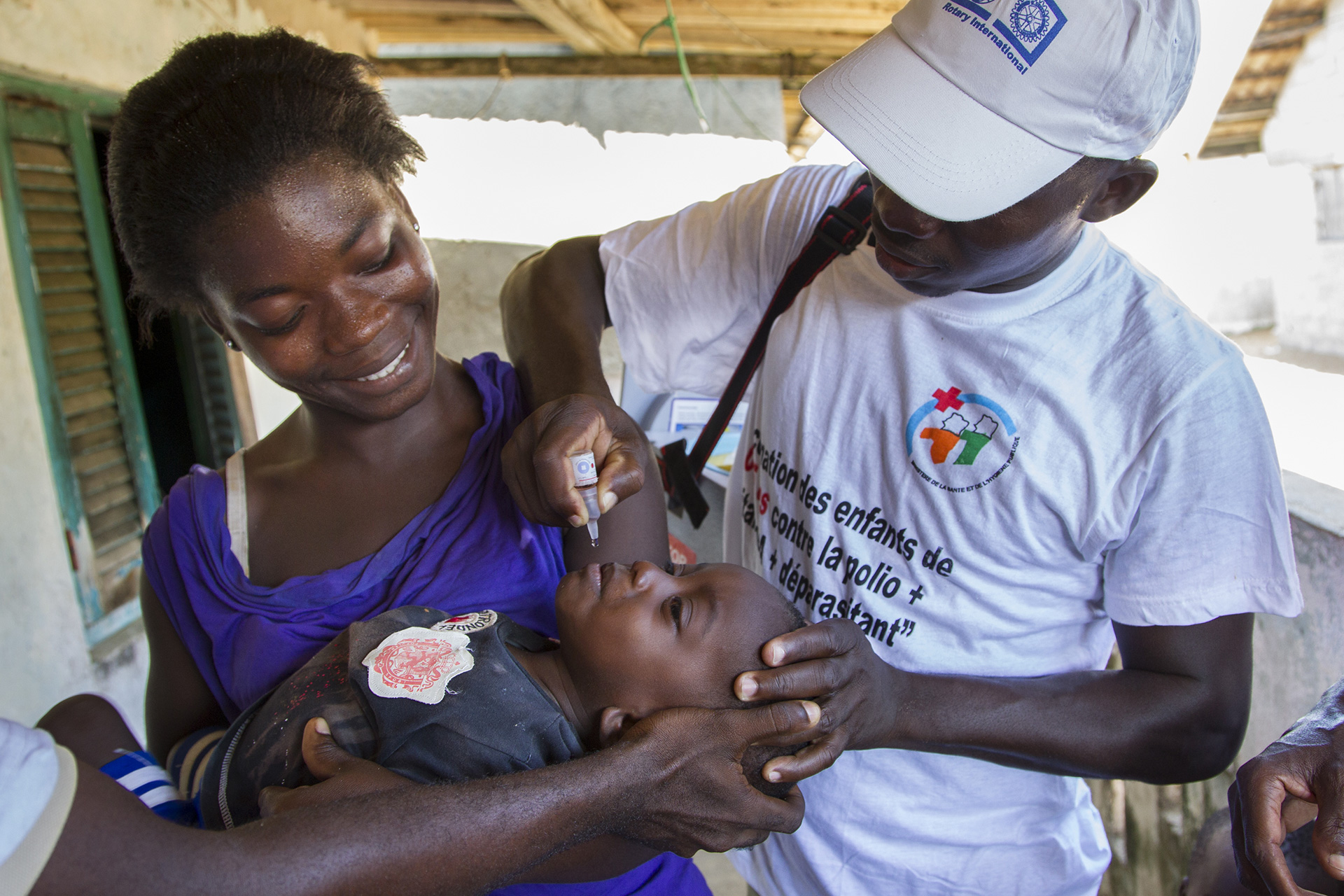The global push to eradicate polio is entering ‘the last mile’, with additional funds pledged to help make the disease history. At the Reaching The Last Mile Forum in Abu Dhabi, governments, international organisations and philanthropists discussed how they can finally rid the world of a dreaded disease.
- $2.6 billion will support the Global Polio Eradication Initiative’s Polio Endgame Strategy 2019-2023.
- An estimated $3.27 billion will be needed to deliver the plan in full
- Only two countries, Pakistan and Afghanistan, report ongoing transmission of the wild poliovirus
- Nigeria has not reported wild polio since 2016, meaning the WHO African region could be certified ‘polio-free’ in 2020
- The Global Certification Commission is an expert group tasked with verifying the elimination of polio viruses around the world
- Two of the three wild poliovirus strains have been eliminated, leaving only wild poliovirus type 1 (WPV1) still in circulation
Polio cases have fallen by 99.9% since the Global Polio Eradication Initiative was launched in 1988. It has coordinated significant advances in disease surveillance and vaccination, helping health workers to reach some of the most remote and challenging locations.
The renewed support for polio eradication efforts comes at a time when only two countries are reporting ongoing cases of polio. Pakistan and Afghanistan recorded 12 and 21 cases, respectively, in 2018.
Professor David Salisbury, Chair of the Global Commission on Certification of Polio Eradication who attending the polio pledging meeting, said: ‘Stopping polio transmission in Pakistan and Afghanistan is going to be touch. And we must stop the vaccine-derived polioviruses, especially in Africa. The pledges of funds to get the job done are a vital step, and countries and donors must be applauded for their generosity.
In addition to overcoming barriers to reach every child, this funding will ensure the resources and infrastructure built by the GPEI can support other health needs today and in the future. Polio workers deliver Vitamin A supplements, provide other vaccines like those for measles and yellow fever, counsel new mothers on breastfeeding, and strengthen disease surveillance systems to anticipate and respond to outbreaks.
As part of its commitment to advance gender equality and women’s empowerment, the GPEI is also working to ensure equal participation of women at all levels of the programme.

‘From supporting one of the world’s largest health workforces, to reaching every last child with vaccines, the Global Polio Eradication Initiative is not only moving us closer to a polio-free world, it’s also building essential health infrastructure to address a range of other health needs,’ said Dr Tedros Adhanom Ghebreyesus, Director-General of the World Health Organization and Chair of the Polio Oversight Board.
Pledges made at The Last Mile Forum include:
- US$160 million from Abu Dhabi;
- US$215.92 million from the United States
- US$160 million from the Islamic Republic of Pakistan
- US$105.05 million from Germany
- US$84.17 million from the Federal Government of Nigeria
- US$10.83 million from Norway
- US$10.29 million from Australia
- US$7.4 million from Japan
- US$2.22 million from Luxembourg
- US$1.34 million from New Zealand
- US$116,000 from Spain
- US$10,000 from Liechtenstein
- US$1.08 billion from the Bill & Melinda Gates Foundation
- US$150 million from Rotary International
- US$50 million from Bloomberg Philanthropies
- US$25 million from Dalio Philanthropies
- US$15 million from the Tahir Foundation
- US$6.4 million from the United Nations Foundation
- US$2 million from Alwaleed Philanthropies
- US$1 million from the Charina Endowment Fund
- US$1 million from Ningxia Yanbao Charity Foundation
- US$1 million from Ahmed Al Abdulla Group
- US$1 million from Al Ansari Exchange
- US$340,000 from Kasta Technologies.
- Earlier this month, the United Kingdom announced it would contribute up to US$514.8 million to the GPEI.




